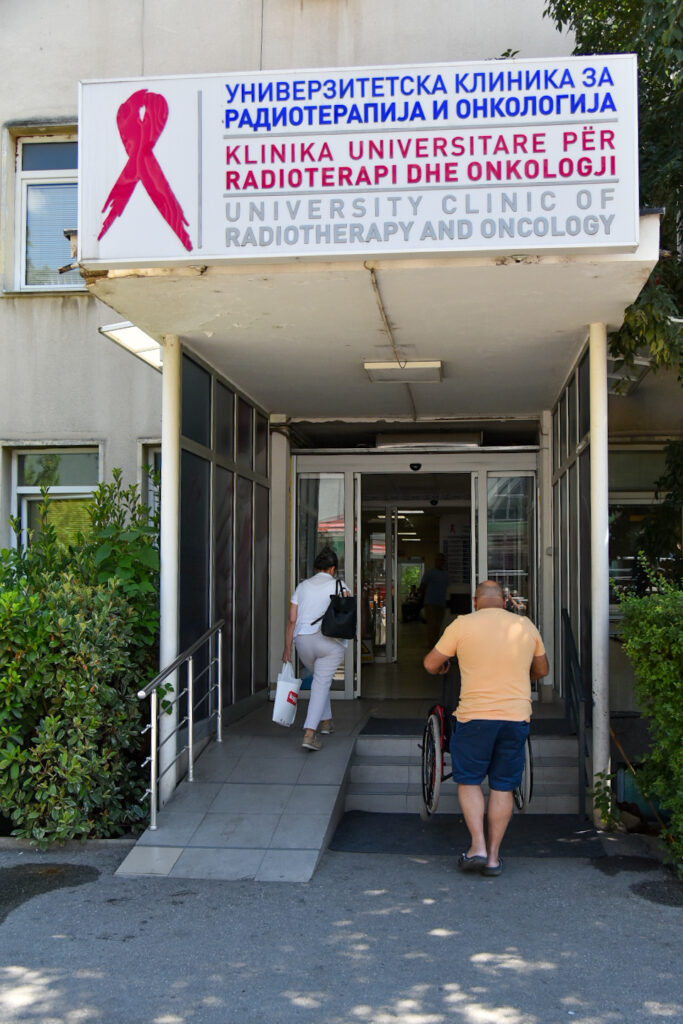In the House of Representatives, the aldermen of anger hiss about the billion -dollar shortage that has been booked
:format(webp)/s3/static.nrc.nl/images/gn4/stripped/data128192654-a96fd3.jpg)
Finance aldermen are generally not excited positions. And better than anyone, they know that you should behave quietly in the stands in a debate in a parliament. But this Wednesday afternoon in the Lower House they hiss. Sounds there and deeply sighed. And at some point even an indignant: « That is not possible! »
With the age of one hundred and fifths, they came from all over the country to the Lower House for a commission debate on ‘Finance of Decentralized Governments’. Or how it is called in municipal country: the ravine.
From 2026, municipalities receive 2.4 billion euros less from the government in the so -called municipal fund, which is good for an average of 70 percent of their income. In addition, the financing of youth care plays: almost all municipalities incur more costs than the government reimburses. And on top of that, that successive cabinets have transferred more and more tasks to the local authorities, sometimes without a matching fee.
The national government and local authorities are now on such a collision course on money and Money comes for youth carethe municipalities go to court. One board layer would then sue the other for notice of default.
Also reconsider municipalities participation in the Housing Agreement (the plans made to accelerate housing) and the care chords (to keep healthcare good and affordable). « Less money means less, » said umbrella organization Association of Dutch Municipalities last week.
Read also
In all municipalities, there is a lack of money ‘a car accident in Slow Motion’
Laughing gas
If you ask the aldermen about examples of tasks that they say they do ‘without cracking’, they will have them in abundance, large and small. The Rijswijk alderman Werner Van Damme (VVD) calls laughing gascylinders. Since 2023, laughing gas has been under the Opium Act: « The police have been compensated for with 13 million euros to maintain. We have to clean up those cylinders, but they appear to explode in garbage trucks and combustion plants. We do not get extra money. »
In Zwijndrecht the town hall is now closed for one day a week, says alderman Tycho Jansen (ChristenUnie-SGP). That saves on security costs. This municipality has already cut more than 5 million euros. He says: « We are obliged to pay benefits one on one. Structurally we get too little money for that. »
Three -quarters of the municipalities expected according to Accountancy firm BDO A budget deficit in the coming four years, rising to jointly 5.2 billion euros. Out examine NRC Last month, on the basis of letters from the provinces, which supervise the municipal finances, that only 40 of the 342 municipalities are ‘structurally and real in balance in their multi -year budget, as is required by law.
The ‘ravine’ will have consequences for all facilities in municipalities. Libraries and swimming pools are often mentioned, but there is often already cut back. Charges – usually the property tax – have already been increased. Many municipalities expect to have to make harder choices in the budget for 2026 in the coming fall, and to have to cut things like poverty alleviation, safety on the street or maintenance of schools, roads and bridges.
Read also
Also read about Tiel’s finances
Alderman Philip Van Veller (VVD) from Leidschendam-Voorburg says: « I understand that the billions were not flying around, but they are now turning their choices towards us, and we can explain that to the residents. » Eva Boswinkel (GroenLinks) from Zutphen says: « I feel that I have to protect my inhabitants against the central government. » Hanneke Steen (CDA) from Hengelo: « The worst thing is that we have to be here to hold our hand. »
It is so busy that the aldermen do not fit in the hall this Wednesday and reserve spaces must be set up. They had to hand in their action signs and buttons.
Effort
Minister Judith Uitermark (Home Affairs, NSC) says to « understand the worries. » « They came over loud and clear to me. » She says she will take ‘steps’ and do ‘efforts’. She will « bring out the problems again » in the cabinet. As a minister, she is responsible for the co-authorities, but not for how much money comes to the municipal fund (that is up to the State Secretary for Finance) or what tasks are all going to local authorities (that is up to other ministers).
Member of Parliament André Flach (SGP) says that it must be ‘apple, egg’ to arrange more money. After all, other ministers want to live up to their ambitions, and for housing or the energy transition they cannot be realized without municipalities.
The opposition is unanimous: it is « code red » (Glimina Chakor, GroenLinks-PvdA) in the municipalities, there is a threat of a « social breach (Michiel van Nispen, SP) and the » basis of our society is being eroded « (Mirjam Bikker, ChristenUnie).
The coalition is divided. Whereas Natascha Wingelaar of NSC is talking about ‘different perspectives on the Ravijn’, Aukje de Vries of the VVD says that there are ‘many challenges’, also for example in the Ministry of Defense, and Marco Deen (PVV) says that ‘once choices must be made,’ Henk Vermeer of the BBB supports the worries of the aldermen.
Vermeer says: « A ravine suggests that you can scramble out, but that is not the case here. On the other hand, there is a plain. This can not be solved other than with structural money for municipalities. » Then he is talking about ‘serious money’.
Uitermark remains cautious. She is not talking about a cut but about ‘a relapse’ in income. She acknowledges that there is « an imbalance, » but does not want to anticipate the Spring Memorandum, nor to tell if and how much money she has requested from the Ministry of Finance for this revision on the 2025 budget. The aldermen did not actually expect that.
Read also
‘The municipalities will shorten 3 billion, will all ministries hurt’

:format(webp)/s3/static.nrc.nl/wp-content/uploads/2025/02/17231820/data128181446-abf172.jpg)
:format(webp)/s3/static.nrc.nl/bvhw/files/2023/06/data101720899-795ad8.jpg)
:format(webp)/s3/static.nrc.nl/images/gn4/stripped/data117919433-a8d64a.jpg)
/s3/static.nrc.nl/images/gn4/stripped/data133263782-60629b.jpg|https://images.nrc.nl/ObMGtxqYQVWbhiZzE5hgLR8QVFI=/1920x/filters:no_upscale()/s3/static.nrc.nl/images/gn4/stripped/data133263782-60629b.jpg|https://images.nrc.nl/kTnEqay5eOnpwdU_TsyAFJv6zVE=/5760x/filters:no_upscale()/s3/static.nrc.nl/images/gn4/stripped/data133263782-60629b.jpg)
/s3/static.nrc.nl/images/gn4/stripped/data133264194-e515bb.jpg)



